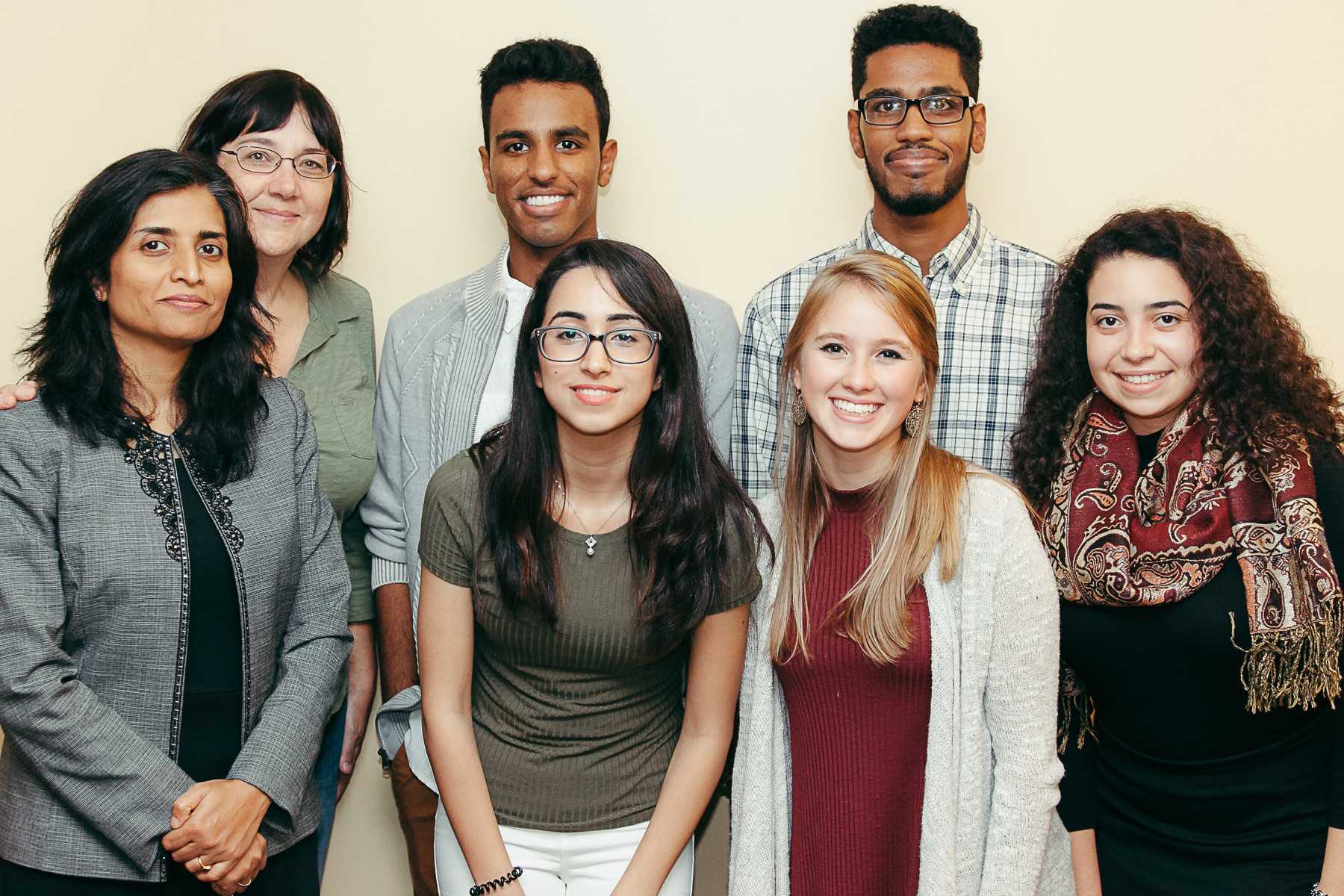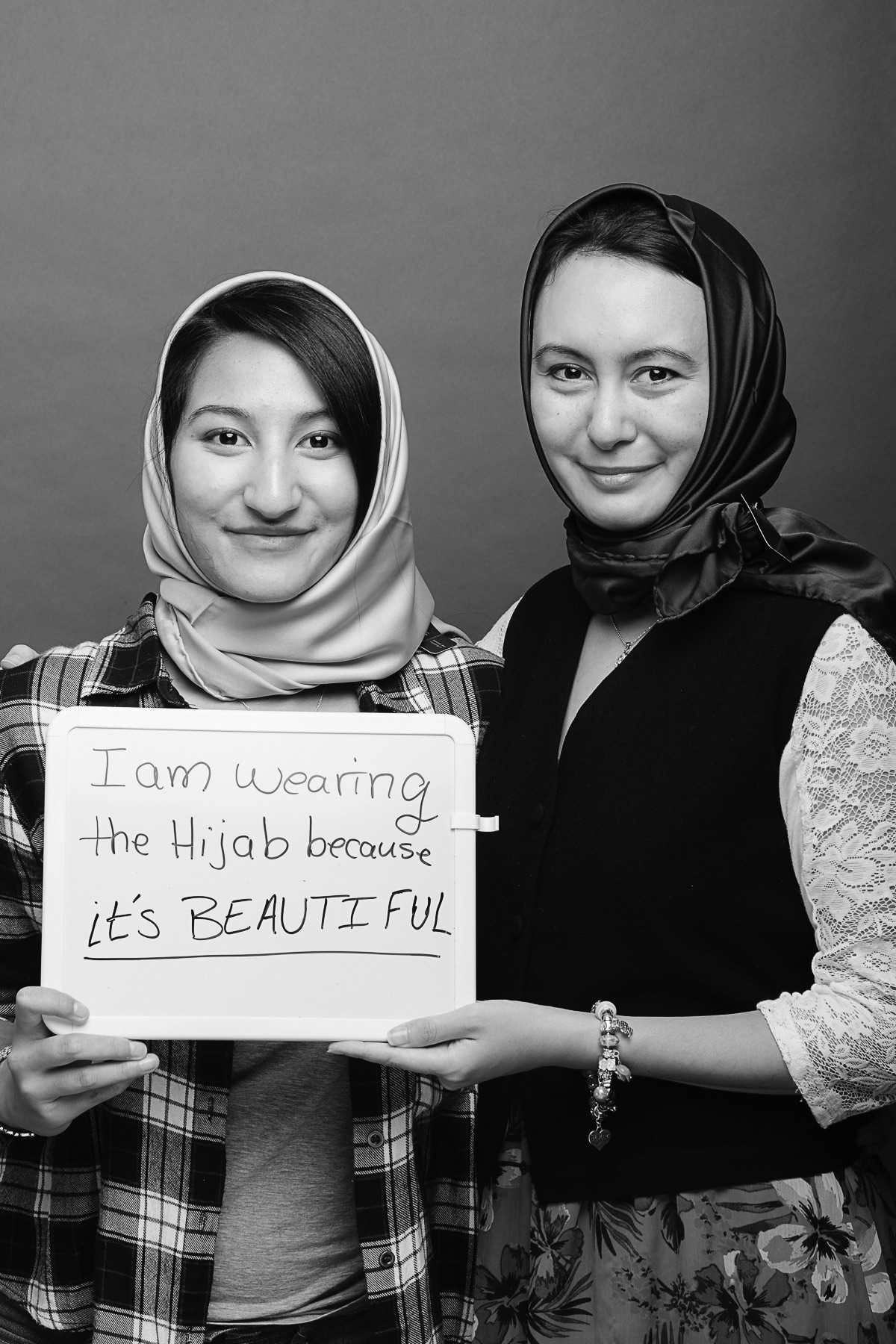Hijabi Awareness Week brings cultural diversity to campus
October 19, 2016
The week of Oct. 17 brought cultural awareness to the Hilltop in the form of Hijabi Awareness Week, co-sponsored by the Muslim Student Association and Gender Studies department. Student leaders of the events included Omer and Asim Elrayah, Mina al Rais, Grace Anderson, Sevda Islamova, and Sarrah Chouiakh.
The events of the week examined the role of perceptions of hijab in current Islamophobia. The hijab is a type of veil, covering the head and chest often worn by Muslim women as a form of modest attire.
The first event on Monday was the Eid Dinner, which featured speaker Shua Khan Arshad, who spoke about Islam, the holiday of Eid, and the significance of the hijab. She was inspired by her extensive travel throughout South Asia, the Middle East, North America and Europe to take steps in creating an Intercultural and Interfaith Organization. She also founded and co-created an Intercultural and Interfaith calendar, currently in its third year of publishing. The event also featured a Hijabi Station, where students could be dressed in hijabi.

Students from the Muslim Student Association with Professor Jennifer Thorn and speaker Shua Khan Arshad at EID dinner.

Sneha Hoda and Rachel Doolan in hijabi.
Tuesday’s event was a screening of the film “They Call Me Muslim” accompanied by another hijab station. The film was followed by discussion, covering topics such as current events and the wide range of meanings that hijab can have.
Director Diana Ferrero portrays the struggle of two women–one in France and one in Iran–to express themselves freely in “They Call Me Muslim.” Samah, a teenager in Paris, decides freely to wear the veil despite the “anti-veil law” instituted by the French government in 2004. “K” feels forced to wear the hijab and pushes the limits by wearing a translucent scarf loosely draped over her hair, putting herself at risk of arrest.
Later in the week, “Young, Muslim, and French” was shown in an event hosted by Nicole Leapley. The film centers around Islamaphobia in France up to the country’s 2004 anti-hijab law. The law outlawing the hijab was perceived by many in the Muslim community as an undemocratic expression of Islamophobia. The film takes place in the town of Dammarie-les-Lys, a diverse working class community in Paris where Muslim women must decide whether to obey the law or not.
A leader in Hijab Awareness Week is Jennifer Thorn, professor of English and advisor of the Gender Studies minor at Saint Anselm College. Thorn said, “This week is prompted by three realities: the ways ideas about Muslims have figured in recent political rhetoric, the ways Syria; and Syrian people, are represented in the western media; and our own knowledge of cases of bullying and harassment of women wearing hijab here in New Hampshire and in the Boston area.”
In a school where so many of the students come from similar ethnic and socioeconomic backgrounds, awareness of issues like these are vital. Thorn continued, “My own hope is to encourage ‘knowing that we don’t know’—awareness of the nature and effects of stereotypes.” Only by learning about other cultures can we understand and truly appreciate them.
Senior Mina al Rais added, “I think this week is very important, because this event helps raise awareness of hijab, women, and Islam in general. Based on what is going on around us nationally and internationally such as political climate, the Syrian crisis, and the increased quantity of harassment and bullying, we, the MSA and Professor Jennifer Thorn decided to step up and create a hijab week on campus to correct the misjudgements that have been created by Islamophobic groups and individuals.”
Al Rais concluded, “This event will benefit the campus since it’s is one of the attraction of politicians and also the surrounding communities. If this college is based on benedictine solidarity, then it’s important that we understand and welcome each other.”


